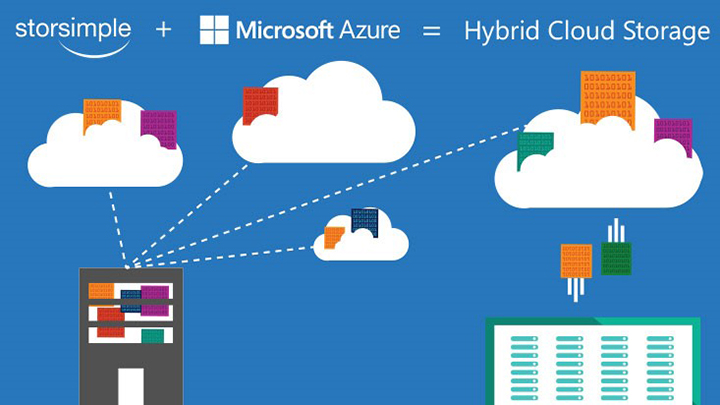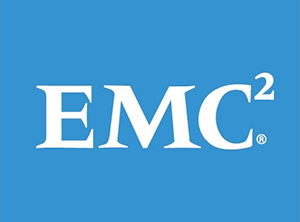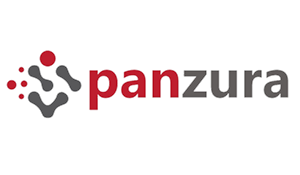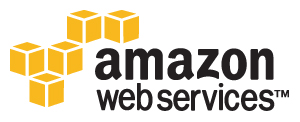Data storage methods have changed diversely in the recent years. With the introduction of cloud, storage has never been easier. The economies and scalability offered by the massive data centers of cloud storage some of the things that change the way we think about storage.
However, despite all the new opportunities offered by cloud storage, it is still affected by several challenges concerning access speed, security and data portability. This is why cloud suppliers had to come up with a better solution – Hybrid cloud storage.
Hybrid cloud is the new storage solution that is intended to narrow the gap between private and public cloud within a business. Public and private clouds are different in various critical aspects. For instance, in a private cloud, information is restricted to a corporate firewall. This means better security and control of the stored data. The limitation is that a private cloud is almost always kept in the company location, exposing it to damage from natural causes and outages.
When using a public cloud, the resources are supplied by a third party and the servers are shared by many customers. This comes with several advantages regarding reliability, scalability, and disaster recovery. However, users have less control and access to the server when they depend entirely on a public cloud.

Source: Thinkstock/eternalcreative
With hybrid cloud, some information is stored on-premise storage while the rest is outsourced to a public cloud, increasing the overall storage value. Using hybrid cloud storage and hybrid cloud backup, you could store sensitive data on private cloud and the rest on the public one. For example, you may want to use public cloud storage for backup, disaster recovery and archiving. The goal is to enable organizations to benefit from both worlds in the best way possible, without being affected by the limitations of each side.
Setting up a hybrid cloud can be done from either an existing public cloud or a private data center setup. The systems can be created in three different ways:
- When different cloud providers work together for an integrated service, offering private and public clouds storage services.
- A single, integrated hybrid service offered by a given cloud provider.
- An organization/business that has its own private cloud service integrates public cloud services into their existing infrastructure.
What Are the Benefits of Hybrid Storage Solutions?
The hybrid cloud computing service has some benefits over a simple private or public cloud setup. These advantages include:
- Scalability: Since private clouds often provide limited flexibility and come in different forms, public cloud services are better for expanding storage volume. Public cloud services are always way larger and capable of scaling far more quickly and effortlessly.
- Flexibility: With the hybrid cloud, there is freedom of choice to either keep all the data in the private cloud or offload some of it onto the public cloud. Although the difference between public and private clouds is distinct, movement of data between the two is easy and fast. Also, you can outsource tasks from the private computing power to the public cloud computing, especially at peak times.
- Cost: Instead of purchasing new servers or storage devices, you can cut on the cost by paying for the storage part in a public cloud. This is especially beneficial to smaller businesses and organizations which may find it too costly to invest in new racks of storage hardware.
Top Hybrid Cloud Storage Suppliers
Microsoft’s StorSimple and Azure
StorSimple devices are capable of extending local storage into Azure’s storage. The device uses local cache to host the most frequently visited data. The data is then uploaded to an Azure-hosted store. You can configure the appliance or manage snapshots for disaster recovery and backup from the Azure Management Portal. Since the device uses iSCSI, it works with other operating systems besides Windows. You can even use it with Linux or as a host for VMware virtual disks.

Source: microsoft
Should you need to retrieve your stored data in an Azure application, the cloud controller can be used to connect your local storage to your cloud storage. Storsimple is a device that also works great as a component of a cloud-hosted disaster recovery system. It can also be used in a different data center to access cloud data, enabling accessibility of information between business units and sites.

Source: tasscc
EMC
EMC’s recently included a hybrid cloud storage in their product range after acquiring TwinStrata. EMC’s CloudArray may be in the form of a physical or virtual appliance which expands storage into a cloud. This works by acting as a storage gateway, operating both in cloud and on-premise to expand storage capacity.
To sweeten the deal, through Enterprise Hybrid Cloud, EMC recently included the ability to provide access between its on-premise storage and that belonging to other clouds like Microsoft.
Azure, vCloud Air and AWS
EMC’s new product also includes the ability to handle data encryption, alongside disaster recovery.

Source: prnewswire
Nasuni’s Filer
Nasuni’s Filer is a network tool that uses the cloud to expand your storage. Here, a single master copy of your data is moved to the cloud for long term storage. This data can be retrieved from multiple sites via Filers. The Filer hardware is manufactured in several models with SSD and HDD options, supporting between 30 – 500 users. They lease and upgrade hardware as your storage demands expand.

Source: pacificad
Panzura
Tackling the matter from a different angle, Panzura’s Quicksilver cloud storage covers remote cloud storage and local/flash disk by utilizing a global file system. Quicksilver controllers can be linked with other devices at different locations and the controllers are compatible with a variety of public cloud storage platforms.
Even if at different locations, each controller allows access to the same file system of both cloud-hosted and local files. Furthermore, adding a new site to your network is as simple as plugging in a new controller. Another key element of Panzura is the global file locking which ensures that files can only be edited by a single user at a time, which prevents accumulation of overwritten or corrupt files.

Source; logitia
Amazon’s Gateway
Amazon has one of the largest combination of services, including storage, databases, networking, apps, computing among others.
Their AWS Storage Gateway provides hybrid capabilities by either caching data locally or saving appropriate primary volumes locally, with snapshots backed up to cloud. The gateway can also be configured to store backups in the cloud as a virtual tape library.
Featured Image Source: Thinkstock/lucky336



